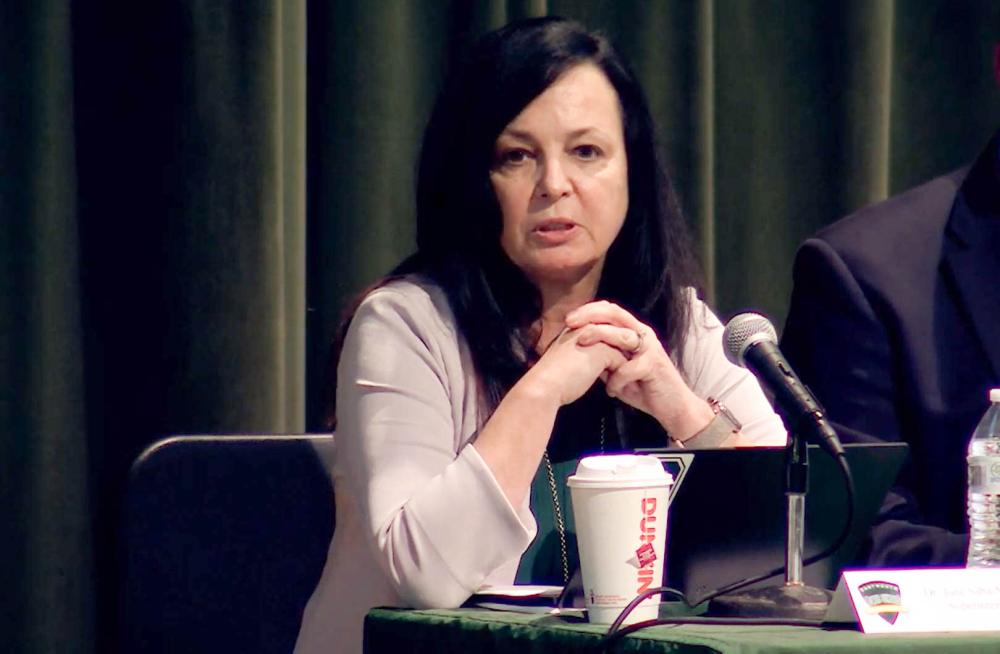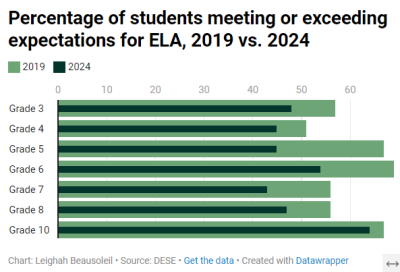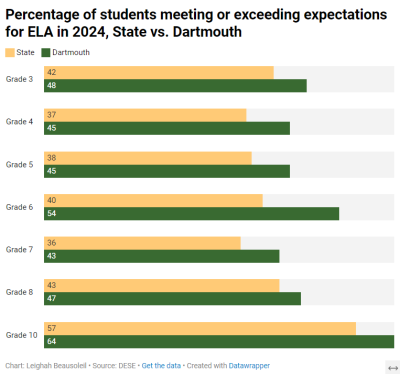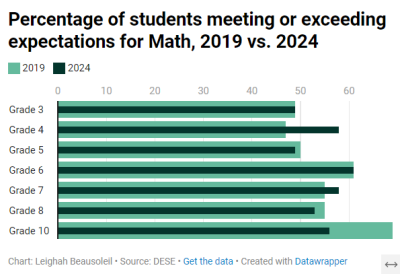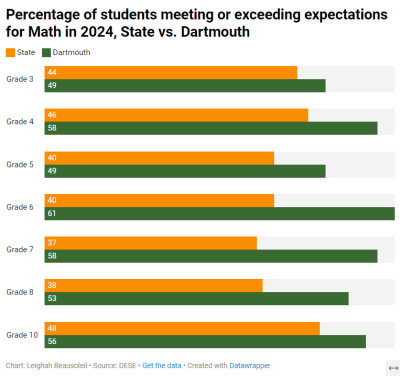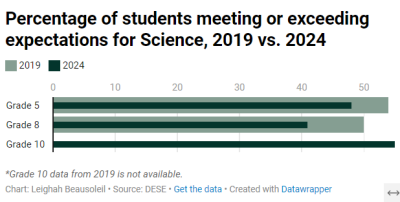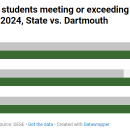Superintendent ‘pleased’ with 2024 MCAS results
Quinn Elementary School was named a School of Recognition on Tuesday, Sept. 24 in tandem with the release of 2024 MCAS results.
Quinn and the 55 other schools on the list were selected from among all the schools in the state on the basis of outstanding performance on the state's standardized tests and for their progress in achieving their own educational targets, according to the Department of Elementary and Secondary Education.
Superintendent June Saba Maguire said, “We're incredibly excited to see the accomplishments of the Quinn School staff and students, and we're looking forward to visiting with them and celebrating the hard work that's gone on there.”
She added, “We want to further support the work that's going on there because we do think this is quite an accomplishment.”
The MCAS results themselves, a sea of numbers measuring performance by subject matter and by grade level, contained both good and bad news for the state as a whole and for the local district.
As her department continues to go through the numbers, Saba-Maguire said the district is “pleased” so far with its scores, especially in regard to math and science. While consistent in some areas, others reveal slight improvements across the district.
Ross Thibault, director of Teaching and Learning Secondary Education, highlighted how 55% of the district's students are “meeting” or “exceeding” score expectations for science, which demonstrates an 11 percentage point increase from last year. On the state level, the figure rose by only 2 percentage points, he noted.
“That's a tribute to the dedication of our science teachers at the high school, particularly our biology team,” Thibault said.
He also mentioned how 55% of students in grades three through eight are also “meeting” or “exceeding” score expectations, which saw a slight increase from the year prior, but remains above that of the state average, which sits stagnant at 41%.
However, on the opposite end of the spectrum, Dartmouth’s English Language Arts scores have largely seen a dip in students “meeting” and “exceeding” expectations.
While grades three, four and 10 have remained relatively consistent with its scores for ELA, the other grades continue to see a decline. Most notable, the fifth graders, who saw only 45% “meet” or “exceed” expectations, compared to last year’s 55%.
Catherine Pavao, director of Teaching and Learning Elementary Education, noted that a decline in ELA scores is consistent with what is seen on the state level, with 38% of students “meeting” or “exceeding” expectations, compared to last year’s 44%.
Furthermore, the gap between the district’s latest scores for ELA and science and those earned prior to the Covid pandemic in 2019 has yet to close, with the 5th grade having seen 67% of students “meet” or “exceed” expectations for ELA at the time.
Saba-Maguire said she believes these results reflect the impact of the pandemic learning loss, which can be seen state-wide and will likely be around for years.
She said her department has worked to provide a number of resources, such as the Acceleration Academy, to teachers to help students bridge that gap and added she hopes by implementing the proposed five-year strategic plan for the district, they will be able to continue to drive improvement.
The Acceleration Academy, a grant-funded academic program that was established in 2021, runs during school vacations and summer break, providing students with additional help through “targeted instruction,” according to Pavao.
The district offers an early literacy academy for rising kindergarteners through to the second grade for those who need some more work on their foundational reading skills.
Pavao said, “The other piece we're certainly looking at is bringing in high-quality research-based instructional materials to work with our students, and so we're really going to be looking closely at the growth, not just on MCAS, but some of our other measures of foundational reading skills as our kids go through.”
Now that the results are available to the public, parents and caregivers will begin to see individual scores through the mail and online in early October, Saba-Maguire said. Additionally, the results of the MCAS will be discussed at future School Committee meetings.
“We always say it's one measure,” Saba-Maguire said of MCAS. “It's certainly an important measure. We definitely take it seriously, and at the same time, we impress upon our educators and our families that it is only one snapshot of student academic achievement and that we use multiple data points to work with our families and our students and our teachers to determine what we need to do to support student learning.”



